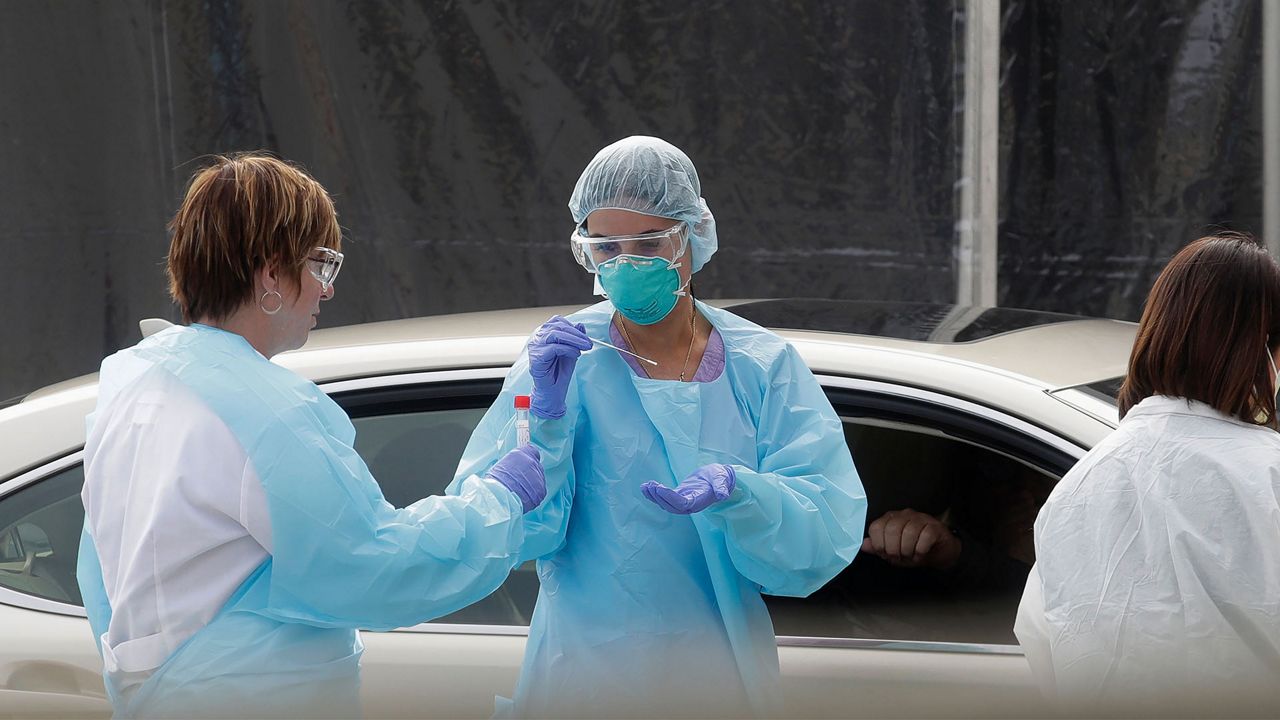We are providing free access for 30 days to our vital coverage of the coronavirus crisis and how it is impacting the local communities we serve. View our live stream here and view our live blog here.
State and local government are working to increase coronavirus testing capabilities with 22 public health labs currently testing across California. Labs and testing facilities can be found up and down the length of the Golden State.
WHERE TESTING IS AVAILABLE IN CALIFORNIA
Health labs currently testing samples for COVID-19 in the following locations:
- Richmond — California Department of Public Health's Laboratory
- Alameda
- Contra Costa County
- Humboldt
- Long Beach
- Los Angeles
- Monterey
- Napa-Solano-Yolo-Marin (located in Solano)
- Orange County
- Riverside
- Sacramento
- San Bernardino
- San Diego
- San Francisco
- San Joaquin
- San Luis Obispo
- San Mateo
- Santa Clara
- Shasta
- Sonoma
- Tulare
- Ventura County
The Richmond Laboratory will provide diagnostic testing within a 48-hour turnaround time. The state is working to make more public health labs are available soon, in order to get tests results sooner and improve patient care.
MORE CORONAVIRUS COVERAGE:
- Coronavirus Updates: What to Know in SoCal
- US/Canada Close Border, HUD Suspends Evictions
- LAUSD Opens 60 Grab and Go Food Centers
WHAT YOU SHOULD DO IF YOU THINK YOU ARE SICK
If you develop symptoms of COVID-19, or have reason to believe you have been exposed, you should call your health care provider or local public health department before seeking medical care. It's also important to inform your health care provider about your travel history.
Symptoms of the virus include:
- Fever
- Cough
- Shortness of breath
COVID-19 can lead to more severe respiratory illness.
AM I AT HIGHER RISK FOR SERIOUS ILLNESS FROM COVID-19?
The coronavirus is highly contagious and has the potential to cause serious illness across the community. However, information from China where the virus first surfaced suggests the following groups may be at higher risk of becoming seriously ill from COVID-19.
- Older adults — 65+
- Individuals with compromised immune systems
- Individuals with serious chronic medical conditions: Heart disease, diabetes, lung disease
Those who fall into the higher risk groups should be extremely diligent in taking precautions to guard against the virus.
HOW TO PROTECT YOURSELF AGAINST COVID-19
Everyone should take every possible precaution to guard themselves and their family against the coronavirus, especially those who fall into a higher risk group.
Actions you can take to guard against the virus include:
- Isolating at home and practicing social distancing
- Washing your hands often with soap and water for at least 20 seconds
- Avoiding touching your eyes, nose, or mouth
- Avoid close contact with people who are sick, large crowds and gatherings
Listen to public health officials to get the latest recommendations and advisories in your community.
For the latest updates on COVID-19 in California visit coronavirus.gov.



